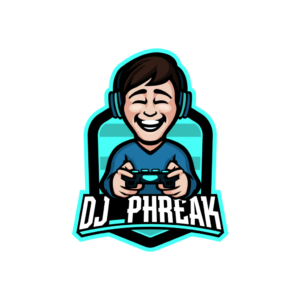The talk of the gaming world is about what Microsoft buying ZeniMax means for PlayStation users. Twitter and Reddit are obsessed with theories that Microsoft will claim the many titles as exclusives for Xbox and PC. I love gaming, I love writing about games, and I love many of the titles just acquired by Microsoft. I’m also a loyal long-term Playstation owner and I’m excited to talk about this topic.
Before I dive in about what this acquisition means for the PS family, let’s talk about just how big this acquisition is. Here are some of the titles the publishing giant has rights to:
- The Elder Scrolls
- Fallout
- DOOM
- Rage
- Wolfenstein
- Bioshock
- Prey
- Dishonored
- Mad Max
- The Evil Within
- Quake
That’s a LOT of titles. Mircosoft already recently purchased Ninja Theory and Obsidian as well. Putting titles like Hellblade, New Vega, and The Outer Worlds in question
What Microsoft Buying ZeniMax Means for PlayStation Users
Here’s what I honestly believe this means for Sony PlayStation owners. Nothing.
That’s right. Nothing.
Microsoft clearly made their decision that the future is in recurring revenue. And many AAA developers didn’t want to put their titles on Gamepass because they only made a portion of the $10 per month price tag. But what if Microsoft could make a massive boost to the offerings on Gamepass? They could not only increase their 15 million subscriber base, but they could also charge more. Because they own the publishing rights, they can take the short term loss in order for the long-term gain. Microsoft will continue to buy publishers and developers and monopolize the Gaming as a Service (GaaS) industry. It’s what I believe they want. It’s also practical and strategic.
With all of these titles available on GamePass, Microsoft could reasonably double their subscription base at even $15 a month. Since it’s available on PC, Xbox, and Android, that’s a very reasonable figure. That boosts them from $150,000,000 a month to $450,000,000 a month.
The games they are acquiring, however, cost billions in development and publishing, in total. Even with my generous figures above, 5.4 billion a year isn’t enough to cover the games. That’s not enough to cover the 7.5 billion they paid for ZeniMax alone.
Fallout 4 cost $120,000,000 to make and sold 12 million copies in the first 24 hours. With DLC and creation club, the title profited about 1.9 billion by my estimations. 58% of these copies were, reportedly, purchased on PlayStation 4, 33% on Xbox One, and only 9% on PC. So if 6,960,000 PS4 copies were worth $417,600,000 why would you remove that from the equation for $10 a month subscribers?
The profit just doesn’t seem there for me. And this is only one title of the many. By cutting out PlayStation from the equation you lose billions in revenue that you won’t make up in low monthly GaaS fees. PS5 is estimated to sell over 200 million units. Why wouldn’t you sell to those users?
A second point is hardware costs. Both Microsoft and PlayStation are selling you these consoles at a loss. A significant loss. They rely on game sales and recurring revenue to recoup the money. Why not corner the subscription-based gaming market AND make billions off of full-priced games from your competing platforms? Why would you spend tens of billions to sell more consoles at a loss, for a low-cost monthly service user base?
Here’s another thought. If you’re Microsoft, you want to bring GamePass to iOS, Nintendo, and PlayStation to get as many subscribers as possible. You do that by acquiring as many developers and publishers as you can. Then you force their hands. Either join up or we can buy your talent pool, essentially. I don’t know this for sure, but I predict Microsoft is reaching negotiations now with Sega and that they may also buy Konami. This puts a lot more pressure on Nintendo, equivalent to what the ZeniMax deal put on Sony.
So no. If you are a PlayStation user I don’t believe you won’t have access to the many games under the Microsoft influence. You’ll just buy it full price on your system, or enjoy it on GamePass on one of the many, and the likely growing number of, platforms that offer it.
